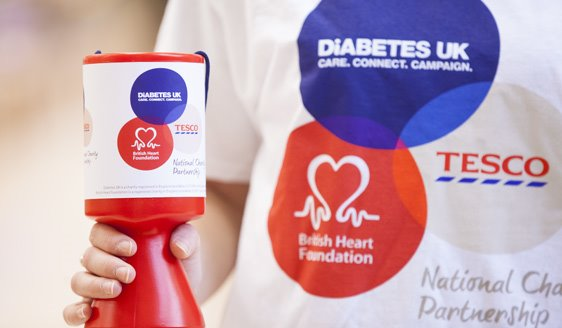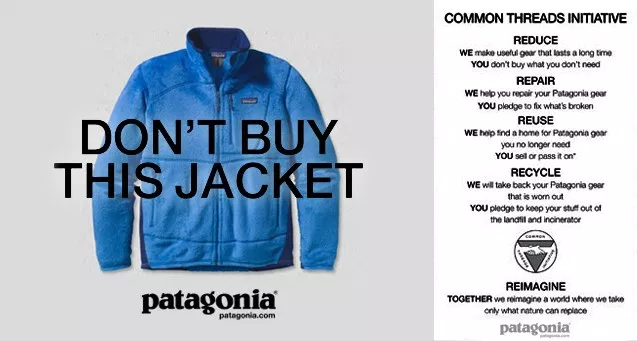In the summer of 2015, I interned briefly at Tesco, the UK-based retailer best known for its hypermarkets.
For about 2 months, I wandered around its sprawling Hertfordshire campus, visiting suppliers, preparing PowerPoint presentations for bored managers, and dreaming of new ways to sell leafy vegetables to an unsuspecting British Public.
On top of all this, all interns had to manage a ‘corporate social responsibility’ (CSR) initiative. I use the word ‘initiative’ rather loosely, because all we really did was stand outside the office with a bucket and matching t-shirts, asking passers-by for cash.
Though everyone was ten years older and it was 9000 kilometres from Singapore, the entire CSR effort was really just an NKF flag day, but with graduates.

Such ‘good-will’ is not just misguided. It’s actually counterproductive if you genuinely want to help.
Firstly, companies exist to make money, period. Nobody starts a ‘company’ to save puppies or feed migrant workers; that’s what non-profit organisations do. The immediate concern of every CEO is the bottom line, and not the plight of Cambodian orphans.
That’s why it’s a disservice to CSR when you call it charity. Once that label is attached, CSR becomes something that contradicts the main goals of profit, growth, or shareholder satisfaction. It becomes a ‘sideline’, with no relevance to the ultimate goal of making money.
This is the reason most CSR projects feel like token gestures, unloved even by those who care deeply about social causes outside of work.
However, it doesn’t necessarily have to be this way. Corporate social responsibility is not doomed to irrelevance if we stop thinking of it as charity and start seeing it as a marketing opportunity. Your superiors might not care about the aforementioned orphans, but even the most cynical COO can see the merits of an ST story praising XYZ Pte Ltd for being a SGX-listed saint.
In other words, CSR would be more sustainable, more effective, and less of a burden if companies just accept that their so-called charity is not charity, but an investment that pays good PR dividends in the long run.
Oh, and also, it happens to help people.

If you need an example, just look to US outdoor clothing company Patagonia. Founded in 1973 by an ex-hippie rock climber, they do US$800 million in sales every year without losing sight of what they stand for: protecting the environment. The board prides itself on being an ‘activist’ company that lends its support to environmental causes around the world by sourcing ethically and recycling returned clothing.
In 2017, they even sued US President Donald Trump for reducing the size of Bears Ears National Monument and Grand Staircase-Escalante National Monument, both located in Utah.
Did their commitment to ethics and the high-profile lawsuit generate brand loyalty amongst its nature-loving clientele? Absolutely.
Yet you can’t argue that no good has come from the company’s efforts.
Patagonia’s corporate responsibility resonates because the company’s CSR initiatives are well-aligned with its brand and its core expertise. With a roster of celebrity athletes like rock climber Tommy Caldwell, they are well-positioned to advocate for the nature reserves where most of their apparel is used.
Closer to home, it’s a little harder to find CSR done right, but Samsui Supplies and Services stands out. Popularly known for its ‘Soup Restaurant’ franchise, the company also runs a pro bono Samsui Kitchen in Changi Prison’s Cluster B, where inmates prepare food for nursing homes.
According to company director Ang Kian Peng, Samsui kitchen started out when they realised that the food being served at nursing homes wasn’t very healthy.
But instead of using doing a one-off food-delivery-cum-PR-stunt for the elderly residents, the company started Samsui kitchen to provide a long-term solution for the lack of healthy (and tasty) food. Thanks to their efforts, the nursing homes got cheap and good food while the prison inmates who volunteered for food preparation gained invaluable experience under the guidance of Samsui’s professional chefs.
When inmates have served their sentence, the company even has plans to hire them full-time.
Did Samsui give a single cent to either the nursing home or the inmates awaiting release? No. Instead, they gave something infinitely more valuable: industry expertise.
By leveraging their pre-existing experience of kitchen management and partnering with Standard Chartered bank, Samsui was able to punch above its weight. The project now delivers 6000 meals a day to nursing homes whilst providing valuable work experience for Changi’s inmates.
For its unorthodox but effective approach to CSR and for serving 500,000 meals to the less privileged, Samsui Kitchens won the President Volunteerism and Philanthropy Awards in 2016. Today, the company doesn’t just cook, it also mentors other companies in CSR under Company of Good’s Fellowship programme.

However, things are a bit more complicated in the real world. While it’s still beautiful to give from your heart and all that, it is necessary to be strategic if you want to make a genuine impact. The act of charity feels good and looks good, but randomly throwing money around is rarely effective.
If you want to create value for the needy, don’t think of CSR as a one-time-only red packet. Consider their problems like you would any other business problem, and apply your relevant skill-set.
Just because you’re ‘doing good’, doesn’t mean that you’re actually any good at it.






